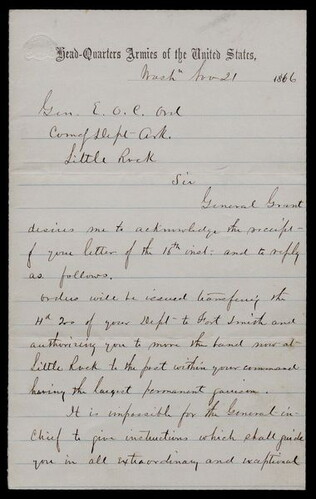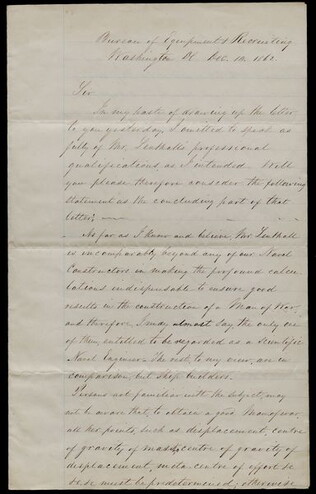circa 14 March 1858
Abbott, George (fl. 1851-1859)
to Harriette Story Paige
George Abbot, a State Department employee, writes to Daniel Webster's sister-in-law Harriette Paige. Abbot, who served as Webster's clerk and assisted with the publication of his orations, informs Paige that he found a proof of the dedication of the...
GLC01946.62.01



